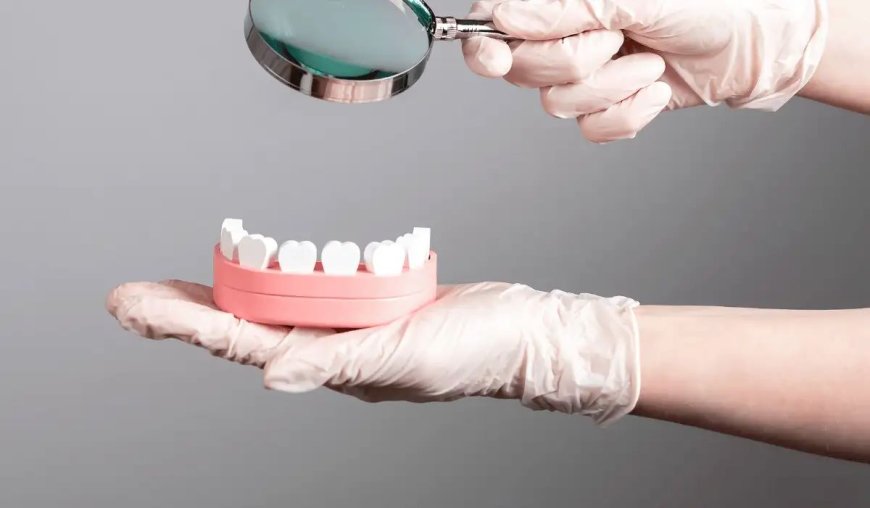3 Simple Preventive Dental Care Habits to Start Today for Better Health
Start these 3 preventive dental care habits today for healthier teeth. Discover how regular dental checkups and cleanings can support your daily dental routine.

Maintaining healthy teeth and gums is essential for long-term oral health. By incorporating simple habits into your daily routine, you can avoid costly treatments and reduce the risk of dental issues like cavities, gum disease, and tooth decay. The earlier you start focusing on preventive dental care, the better your chances of maintaining a bright, healthy smile for years to come. In this article, we will share three easy-to-follow habits that can help keep your teeth in top shape and why regular dental checkups are important to your overall oral health.
Brush and Floss Regularly to Protect Your Teeth
One of the most fundamental habits in preventive dental care is brushing and flossing. These two practices can effectively remove plaque, bacteria, and food particles that accumulate on your teeth throughout the day.
Brush at Least Twice a Day for Optimal Results
Brushing your teeth twice a day is essential to prevent plaque buildup. Use a fluoride toothpaste and a soft-bristled toothbrush to gently clean all surfaces of your teeth. Brushing properly helps remove plaque, which can lead to cavities and gum disease if left unchecked. Make sure to brush for at least two minutes, paying attention to the back teeth, which are often neglected.
Flossing: Don’t Skip It!
Flossing is crucial for cleaning the spaces between your teeth that your toothbrush can't reach. By flossing daily, you help prevent the formation of cavities between your teeth and reduce the risk of gum disease. Flossing also helps remove food particles that can lead to bad breath, ensuring a fresher mouth throughout the day.
Use Mouthwash to Kill Germs and Freshen Breath
Incorporating mouthwash into your routine can enhance your preventive dental care efforts. While it’s not a replacement for brushing and flossing, mouthwash can help reduce bacteria and plaque in hard-to-reach areas. Regular visits to a deep cleaning dentist can further ensure the thorough removal of plaque buildup.
Choose a Mouthwash with Antibacterial Properties
Look for mouthwashes that contain antibacterial ingredients, such as chlorhexidine or cetylpyridinium chloride. These mouthwashes target bacteria that cause bad breath, cavities, and gum disease. Using mouthwash once or twice a day can significantly improve your overall oral hygiene and provide a clean, refreshing feeling.
Mouthwash: An Extra Layer of Protection
Mouthwash acts as an additional layer of protection against bacteria, helping to maintain a cleaner mouth. It helps neutralize acids that can erode enamel, and some formulas even strengthen teeth with fluoride. It’s especially helpful for people with braces, bridges, or other dental work, as it can reach areas that brushing and flossing might miss.
Schedule Regular Visits to Your Dentist
Even with the best daily habits, professional dental care is irreplaceable. Regular visits to your dentist for checkups and cleanings are an essential part of preventive dental care, ensuring that any potential issues are caught early.
The Importance of Professional Cleanings
While daily brushing and flossing are essential, professional deep cleaning by a dentist removes hardened plaque (tartar) that brushing can’t. A deep cleaning dentist uses specialized tools to clean below the gum line and around your teeth, ensuring your gums stay healthy and free from infection. Regular visits to a dentist can help identify early signs of cavities or gum disease before they worsen.
Catch Issues Early with Regular Checkups
Visiting your dentist regularly, typically every six months, allows for the detection of dental issues in their early stages. Dentists can identify problems such as cavities, tooth decay, or gum disease before they become severe, saving you time, pain, and money in the long run. These visits also provide an opportunity for your dentist to give personalized advice on how to improve your daily routine.
Eat a Balanced Diet to Support Your Teeth
What you eat plays a significant role in the health of your teeth. A diet rich in vitamins, minerals, and other nutrients helps keep your teeth strong and resistant to decay.
Foods That Promote Healthy Teeth
Foods like cheese, yogurt, and leafy greens are excellent for dental health because they contain calcium and other nutrients that strengthen teeth and bones. Crunchy fruits and vegetables, such as apples and carrots, also help clean your teeth naturally by scrubbing away plaque as you chew.
Avoid Sugary Snacks That Can Harm Your Teeth
Sugary foods and drinks are a major contributor to tooth decay. When sugar combines with bacteria in your mouth, it forms an acid that erodes tooth enamel. Limit your consumption of sugary snacks and drinks, and try to rinse your mouth with water after consuming them. Healthy eating habits can significantly reduce your risk of cavities and keep your teeth strong.
Conclusion:
By adopting these simple preventive dental care habits, you can protect your teeth and gums from many common dental issues. Regular brushing, flossing, and professional checkups are essential for maintaining your dental health. Don’t forget the importance of a balanced diet to support your teeth, and remember that visiting a deep cleaning dentist for regular cleanings is an important part of your overall dental routine. Start today and enjoy the benefits of a healthier mouth for years to come!
What's Your Reaction?
























![[Latest] Isoprene Market to Cross $5.31 Billion in Total Revenue by 2030 | Riding on a Strong 7.5% CAGR](https://news.bangboxonline.com/uploads/images/202408/image_430x256_66d155cde3765.jpg)